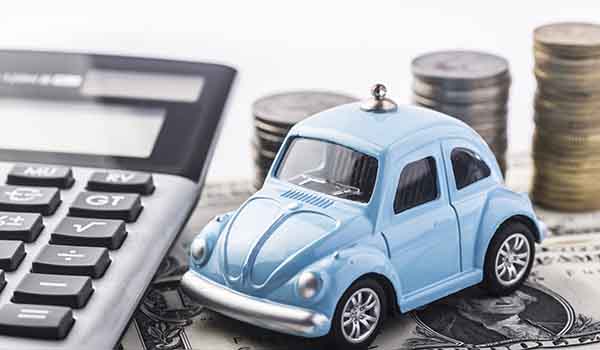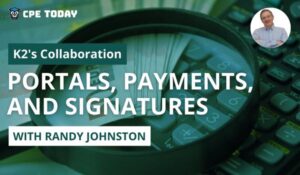
Major Topics
Learning Objectives
- Recognize tax vehicle depreciation (?168) and expensing (?179) methods including their requirements and limitations under MACRS and recognize basis, business use, and deduction computations.
- Specify the predominate business use rule recognizing the result of less than 50% qualified business use, cite the pros and cons of auto leasing, and determine how to estimate monthly lease payments indicating what factors affect payments so clients may recognize leasing costs and know common leasing terms.
- Identify items included under the standard mileage method listing items that may be separately deducted, determine the taxable fringe benefit value of an employer-provided automobile using the general and special valuation methods and specify several qualified nonpersonal use vehicles stating what reporting standards apply.
Course Description
Operating costs for vehicles used in the course of a taxpayer’s business are deductible. Thus, when taxpayers use their vehicles in their businesses or employment, they can deduct that portion of the cost of operating their vehicle. Such costs that can be deducted are property taxes that are paid on their vehicle if deductions are itemized on Schedule A. This mini-course reviews apportionment of personal and business use, the actual cost method, and the standard mileage method, and expensing. Moreover, this presentation informs practitioners about topics such as the benefits and costs of leasing versus owning and working condition fringe benefits.
Compliance Information
Advanced Preparation
None
Field of Study
Taxes
Credits
2 Credits
Published Date
April 14, 2023
Revision Date
March 5, 2024Course Authors
Danny Santucci
Danny earned his Bachelor of Arts in Political Science from the University of California at Irvine in 1969. He received his Juris Doctorate from Boalt Hall School of Law, University of California at Berkeley in 1972, at which time he began practice as a tax attorney in Southern California. His legal career started with the business and litigation firm of Edwards, Edwards, and Ashton. Later he joined the Century City entertainment firm of Bushkin, Gaims, Gaines & Jonas working for many well-known celebrities. In 1980, Danny established the law firm of Santucci, Potter, and Leanders, in Irvine, California. With increasing lecture and writing commitments, Danny went into sole practice in 1995. His practice emphasizes business taxation, real estate law, and estate planning.
Overview
Operating costs for vehicles used in the course of a taxpayer’s business are deductible. Thus, when taxpayers use their vehicles in their businesses or employment, they can deduct that portion of the cost of operating their vehicle. Such costs that can be deducted are property taxes that are paid on their vehicle if deductions are itemized on Schedule A. This mini-course reviews apportionment of personal and business use, the actual cost method, and the standard mileage method, and expensing. Moreover, this presentation informs practitioners about topics such as the benefits and costs of leasing versus owning and working condition fringe benefits.
Course Details
- Recognize tax vehicle depreciation (?168) and expensing (?179) methods including their requirements and limitations under MACRS and recognize basis, business use, and deduction computations.
- Specify the predominate business use rule recognizing the result of less than 50% qualified business use, cite the pros and cons of auto leasing, and determine how to estimate monthly lease payments indicating what factors affect payments so clients may recognize leasing costs and know common leasing terms.
- Identify items included under the standard mileage method listing items that may be separately deducted, determine the taxable fringe benefit value of an employer-provided automobile using the general and special valuation methods and specify several qualified nonpersonal use vehicles stating what reporting standards apply.
Intended Audience —
Advanced Preparation — None
Field of Study — Taxes
Credits — 2 Credits
IRS Program Number –
Published Date – April 14, 2023
Revision Date – March 5, 2024
Course Authors
Danny Santucci
Danny earned his Bachelor of Arts in Political Science from the University of California at Irvine in 1969. He received his Juris Doctorate from Boalt Hall School of Law, University of California at Berkeley in 1972, at which time he began practice as a tax attorney in Southern California. His legal career started with the business and litigation firm of Edwards, Edwards, and Ashton. Later he joined the Century City entertainment firm of Bushkin, Gaims, Gaines & Jonas working for many well-known celebrities. In 1980, Danny established the law firm of Santucci, Potter, and Leanders, in Irvine, California. With increasing lecture and writing commitments, Danny went into sole practice in 1995. His practice emphasizes business taxation, real estate law, and estate planning.
All of our self-study courses are NASBA approved (through our partners at K2 Enterprises) the revisions to the Statement on Standards for Continuing Professional Education (CPE) Programs (Standards).
Your Registration Includes:
- ✓ Course materials (video & PDF version)
- ✓ Unlimited attempts to complete exam
- ✓ Course materials (PDF & Sample Materials)
- ✓ Instant grading & certificate of completion
- ✓ One year access to complete your CPE
- ✓ Completion certificate



